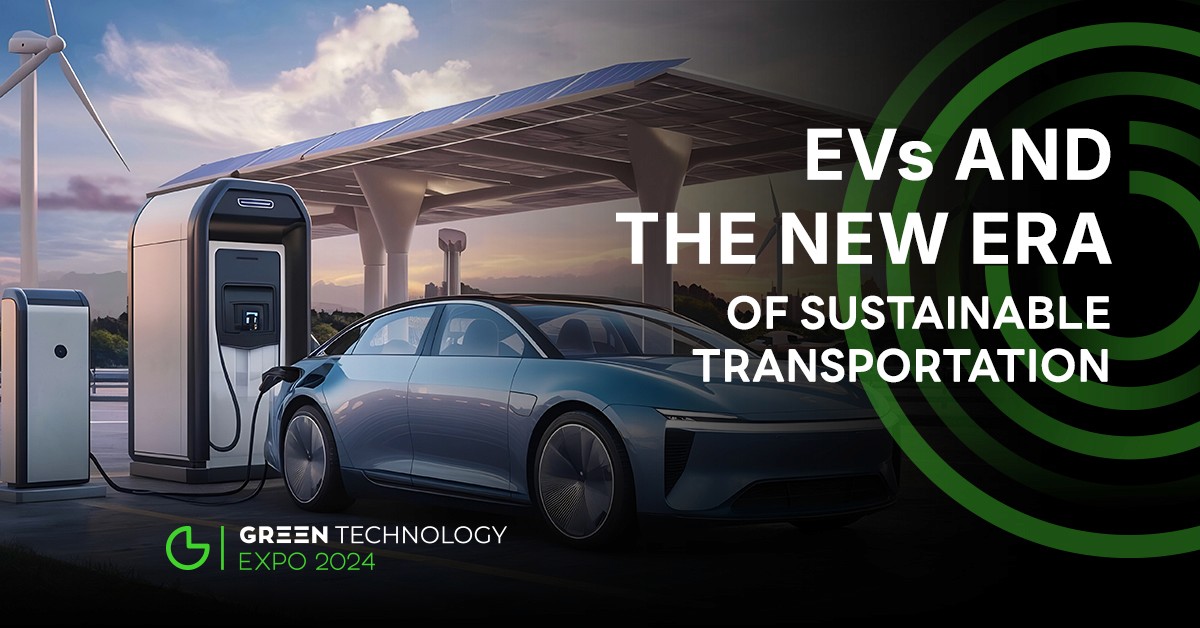What Is Net Zero and Why Does It Matter?
Aug 27, 2024
As the world grapples with the escalating threats of climate change, the concept of "net zero" has become a central focus in global sustainability efforts. Net zero refers to the balance between the amount of greenhouse gasses emitted into the atmosphere and the amount removed, effectively neutralizing the impact of human activities on the environment.
This goal is not only crucial for curbing the effects of climate change but also for driving innovation and economic growth through the adoption of green technologies and sustainable practices. From multinational corporations to small businesses, and from governments to individual households, the push towards net zero is transforming how we approach energy use, production, and overall sustainability.
In this article, we’ll explore what net zero means, its benefits, why it matters, and the best practices for achieving it, including real-world examples like the 2024 Paris Olympics.
What Is Net Zero?

When greenhouse gasses are removed from the atmosphere and our emissions are balanced, there is no net increase in world emissions. This is known as net zero. In order to reach net zero, emissions must be reduced using energy-efficient technologies, sustainable practices, and cleaner energy sources. Any emissions that remain must then be offset by carbon capture or replanting.
Since it directly addresses the primary cause of climate change—excess greenhouse gas emissions in the atmosphere—the idea of net zero is crucial to the fight against it. In order to contribute to a sustainable future, businesses, governments, and individuals all have policies, technology, and lifestyles that they have adopted. Internationally, programs like the Paris Agreement and the UN's Net Zero Coalition seek to unify efforts toward this objective, highlighting the necessity of swift and coordinated action.
To put it simply, net zero involves changing how we think about energy production, consumption, and resource management in order to strike a balance that guarantees a steady and sustainable climate.
Benefits of Net Zero
The advantages of net zero are numerous and profound, encompassing social, economic, and environmental facets. Here are a few main benefits:
Investor Draws
Attracting investors is one of the most appealing advantages of implementing net zero solutions. Investors are searching more and more for businesses and initiatives with strong environmental, social, and governance (ESG) credentials as the world's awareness of climate change rises. Businesses that pledge to achieve net zero are more appealing to investors who are keen to support sustainable practices since they are frequently regarded as more responsible and forward-thinking. Better market positioning and more funding opportunities may result from this.
Economic Growth
By creating new markets and encouraging innovation, particularly in the fields of green technology and renewable energy, net zero initiatives promote economic growth. Businesses that adopt sustainable practices open up doors for economic resiliency and employment growth. In addition to lowering dependency on fossil fuels, the growth of renewable energy sources like solar and wind power also stimulates the economy by drawing investments and creating jobs.
Additionally, integrating IoT and other technologies into energy management boosts productivity and lowers expenses, increasing a company's ability to compete. The transition to a low-carbon economy stimulates R&D spending as well, resulting in more environmentally friendly goods and procedures. As a result, the transition to net zero not only helps mitigate climate change but also supports long-term economic growth and stability.
Adherence to Regulations
Businesses that are already headed toward net zero are better positioned to abide by the tighter carbon emission laws that governments throughout the world are enacting.
This can make it less likely that businesses will be hit with fines, penalties, or other legal issues, enabling them to run more efficiently and confidently. Early implementation of net zero procedures can also provide businesses with a competitive advantage in sectors where regulations are getting stricter.
Efficiency of Operations
Operating efficiency increases are frequently the result of implementing net zero policies. Businesses can cut their operating expenses by adopting energy-efficient technologies, cutting waste, and optimizing resource use. This helps the environment become cleaner and more sustainable in addition to improving the bottom line. For instance, a company's dependency on fossil fuels can be greatly decreased by utilizing renewable energy sources like solar and wind power, which would result in cheaper energy costs and a smaller carbon impact.
Reputation and Brand Loyalty
Lastly, businesses that embrace net zero can improve their standing with the public and foster more customer brand loyalty. People are choosing to support brands that reflect their beliefs more and more as they become conscious of how their purchases affect the environment. Businesses that set the standard for sustainability have a greater chance of winning their customers' confidence and allegiance, which can result in long-term financial success.
Why Does it Matter?

It is impossible to ignore the significance of net zero in the battle against climate change. The need for practical answers grows as the globe continues to suffer the catastrophic repercussions of global warming, from extreme weather events to rising sea levels. Because net zero directly targets greenhouse gas emissions, the primary driver of climate change, it is an essential part of these solutions.
We can control the amount of these gasses in the atmosphere and contribute to moderate world temperatures by reaching net zero. This is especially crucial in light of global warming accords like the Paris Agreement, which seeks to keep warming to well below 2 degrees Celsius above pre-industrial levels. One of the most important tactics for accomplishing this objective and averting the worst effects of climate change is net zero.
Green technologies and renewable energy are essential to this endeavor. We can drastically cut our carbon emissions by moving away from fossil fuels and toward renewable energy sources like hydroelectric, solar, and wind power. IoT technology integration can also optimize resource usage in other industries, like energy management, which lowers emissions even further. These all-encompassing approaches are necessary to build a sustainable future and save the environment for coming generations.
Best Practices for Achieving Net Zero
Reaching net zero is a difficult task that calls for a diversified strategy. The following best practices can assist governments and organizations in achieving this crucial objective:
Use Renewable Energy Sources
Among the best strategies to cut carbon emissions is to switch to renewable energy. Governments and businesses alike should place a high priority on the creation and application of sustainable energy sources like hydropower, wind, and solar energy. This encourages energy independence and security in addition to lowering dependency on fossil fuels.
Put Energy-Efficient Measures Into Practice
Increasing energy efficiency is also essential to reaching net zero. Through the optimization of energy use in transportation, buildings, and industrial processes, entities can effectively mitigate their carbon footprint. Modern technology, such Internet of Things (IoT) devices that track and manage energy usage in real time, can help achieve this.
Purchase Carbon Offsetting
Although cutting emissions is the main objective, total emission elimination might not be achievable. In these situations, reaching net zero and achieving carbon neutral status can be greatly aided by carbon offsetting. This entails funding activities like carbon capture and storage (CCS) and reforestation that eliminate or significantly lower atmospheric carbon dioxide.
Encourage Sustainable Practices
Encouraging sustainable practices among employees, customers, and stakeholders is essential for achieving net zero. This can include promoting energy conservation, reducing waste, and supporting environmentally friendly products and services. Organizations can also engage in public awareness campaigns to educate the broader community about the importance of sustainability.
Example of Paris 2024 Olympics
The 2024 Paris Olympics is a prime example of how large-scale events can contribute to the net zero goal. The organizers have committed to making the event the most sustainable Olympics in history by incorporating green buildings, renewable energy, and sustainable transportation options. The use of IoT technology will also play a significant role in managing energy consumption and reducing emissions during the event. This serves as a model for other large-scale events and organizations looking to achieve net zero.
Summary
To summarize, a key tactic in the fight against climate change is net zero, which aims to remove or offset greenhouse gas emissions in order to balance them. This strategy has major social and economic advantages in addition to being essential for environmental sustainability. Organizations and governments may draw in investment, spur innovation, and guarantee adherence to changing environmental requirements by committing to net zero. Achieving net zero requires a shift to renewable energy, improvements to energy efficiency, and funding for carbon offset initiatives. The 2024 Summer Olympics in Paris provides a good example of how major events may set the standard for sustainability by incorporating innovative technology like IoT, green buildings, and renewable energy sources to lower emissions.
Securing a stable climate and a sustainable future need achieving net zero. It is an all-encompassing endeavor that necessitates cooperation amongst all sectors, from corporate plans to government regulations, as well as individual acts. Although achieving net zero will not be easy, in the long run it will be a goal worth pursuing for social, economic, and environmental reasons. As we proceed, achieving net zero will be essential to creating a more egalitarian and affluent society for coming generations, as well as one that is more robust to climate change.
News
What Is Green Innovation in Business?
Dec 17, 2024
EVs and the New Era of Sustainable Transportation
Dec 3, 2024
Eco-Friendly Technology Trends to Watch for a Greener Future
Nov 19, 2024





